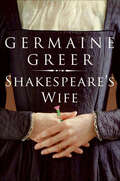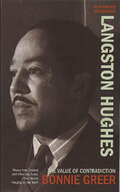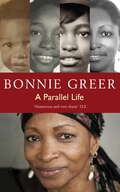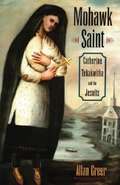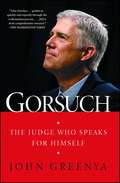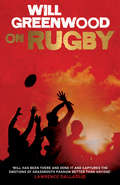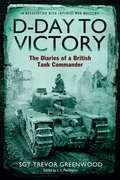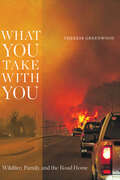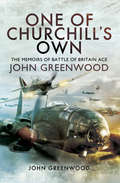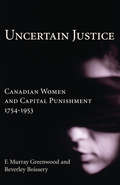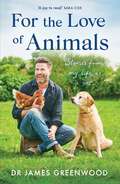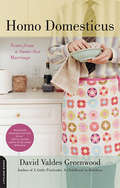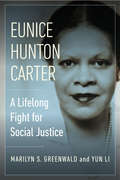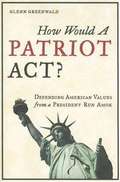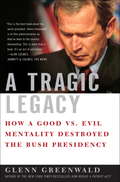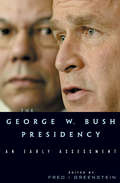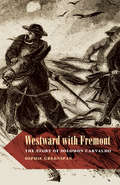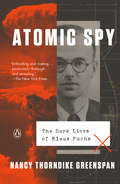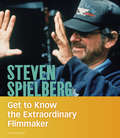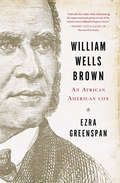- Table View
- List View
Shakespeare's Wife
by Germaine Greer“Lively, rigorous, fiercely imagined…an ingenious new book…” — Katie Roiphe, New York Times Book Review“Fascinating…Greer meticulously exposes the sexist biases underlying depictions of Ann…and re-creates in lavish detail the material realities of women’s lives in 16th century England.” — Entertainment Weekly“A riveting read…Not only Greer’s scholarship but her sympathy and her imagination are fully engaged.” — Victoria Glendinning“A richly textured account…Greer’s theory about Shakespeare’s relation with his wife is original and persuasive…She reminds us of facts other critics have ignored.” — Marilyn French, Publishers Weekly (Boxed Signature Review)“Intriguing . . . A portrait of life in Stratford circa 1600 on almost every level and in every aspect.” — Booklist
Langston Hughes: The Value of Contradiction
by Bonnie GreerLangston Hughes was a man far ahead of his time, but his actions were often unpredictable, contradictory and refused classification. To give an example, he campaigned tirelessly for civil rights but then testified before the controversial House Committee on Un-American Activities, seen by many as a witch-hunt. Rather than ignoring or excusing these contradictions, Bonnie Greer confronts them, highlighting the many contradictions present in both his day and ours and painting an unforgettable portrait of a man caught up in strange and contradictory times.
Langston Hughes: The Value of Contradiction
by Bonnie GreerLangston Hughes was a man far ahead of his time, but his actions were often unpredictable, contradictory and refused classification. To give an example, he campaigned tirelessly for civil rights but then testified before the controversial House Committee on Un-American Activities, seen by many as a witch-hunt. Rather than ignoring or excusing these contradictions, Bonnie Greer confronts them, highlighting the many contradictions present in both his day and ours and painting an unforgettable portrait of a man caught up in strange and contradictory times.
A Parallel Life
by Bonnie GreerAward-winning playwright, author and critic Bonnie Greer's touching, funny and thought-provoking memoir is a voyage into the making of a woman who set out to unmake what she'd been born and brought up to be: 'a proper girl' - a precious definition in a segregate and racist America where black life was deemed only three-fifths of white life ... and the life of a black woman even less.
A Parallel Life
by Bonnie GreerAward-winning playwright, author and critic Bonnie Greer's touching, funny and thought-provoking memoir is a voyage into the making of a woman who set out to unmake what she'd been born and brought up to be: 'a proper girl' - a precious definition in a segregate and racist America where black life was deemed only three-fifths of white life ... and the life of a black woman even less.
Mohawk Saint: Catherine Tekakwitha and the Jesuits
by Allan GreerOn October 21, 2012, Pope Benedict XVI canonized Saint Kateri Tekakwitha as the first Native North American saint. Mohawk Saint is a work of history that situates her remarkable life in its seventeenth century setting, a time of wars, epidemics, and cultural transformations for the Indian peoples of the northeast. The daughter of a Algonquin mother and an Iroquois father, Catherine/Saint Kateri Tekakwitha (1656-1680) has become known over the centuries as a Catholic convert so holy that, almost immediately upon her death, she became the object of a cult. Today she is revered as a patron saint by Native Americans and the patroness of ecology and the environment by Catholics more generally, the first Native North American proposed for sainthood. Tekakwitha was born at a time of cataclysmic change, as Native Americans of the northeast experienced the effects of European contact and colonization. A convert to Catholicism in the 1670s, she embarked on a physically and mentally grueling program of self-denial, aiming to capture the spiritual power of the newcomers from across the sea. Her story intersects with that of Claude Chauchetière, a French Jesuit of mystical tendencies who came to America hoping to rescue savages from sin and paganism. But it was Claude himself who needed help to face down his own despair. He became convinced that Tekakwitha was a genuine saint and that conviction gave meaning to his life. Though she lived until just 24, Tekakwitha's severe penances and vivid visions were so pronounced that Chauchetière wrote an elegiac hagiography shortly after her death. With this richly crafted study, Allan Greer has written a dual biography of Saint Kateri Tekakwitha and Chauchetière, unpacking their cultures in Native America and in France. He examines the missionary and conversion activities of the Jesuits in Canada, and explains the Indian religious practices that interweave with converts' Catholic practices. He also relates how Tekakwitha's legend spread through the hagiographies and to areas of the United States, Canada, Europe, and Mexico in the centuries since her death. The book also explores issues of body and soul, illness and healing, sexuality and celibacy, as revealed in the lives of a man and a woman, from profoundly different worlds, who met centuries ago in the remote Mohawk village of Kahnawake.
Gorsuch: The Judge Who Speaks for Himself
by John GreenyaLearn all about Neil Gorsuch, the youngest judge to be nominated to the Supreme Court in twenty-five years, with this comprehensive and fascinating biography.When forty-nine-year-old Neil Gorsuch was nominated to the Supreme Court by President Donald Trump, he was told by a senator, “We need to know what’s in your heart.” Now, acclaimed author John Greenya seeks to answer that question with this captivating book. Born in Colorado, Gorsuch remains somewhat of a mystery to Democrats and Republicans alike. Based on intense research and interviews with people who have known Gorsuch in all periods of his life, both his opponents and his friends—from his early work as a lawyer and his year as a Justice Department official, to his ten-and-a-half years on the Federal bench, this is the best way to learn more about the conservative replacement to Justice Antonin Scalia.
Will Greenwood On Rugby
by Will Greenwood(Quote to come) In almost twenty years in the sport, Will Greenwood has achieved just about everything a professional rugby player could ever aspire to, playing an integral role in England's victorious Rugby World Cup win in 2003, and achieving great things beyond that at the Six Nations and on tour with the Lions. Never was a man more well placed to write on the sport. Here Greenwood delves into the game; how rugby can take you to hell and back; how it can introduce you to a few choice characters; how it can bring you to places you've never been and it can teach you a few things about life. He has seen the game change beyond recognition and he has his say on the debates, the rules and the greatest tournament on earth: the Rugby World Cup. From grass roots to elite professionalism, from hilarious character sketches of players to technical discussion of scrummaging, Greenwood delivers unrivalled writing on the game of rugby. ill Greenwood represented Leicester and Harlequins, won more than 50 caps for the England rugby team, including the World-cup winning campaign of 2003, and served on two Lions tours. He now works as a pundit for Sky Sports and as a columnist in the Telegraph, where has made his name as the face of intelligent and entertaining rugby writing and punditry.
D-Day to Victory
by Trevor Greenwood'Survival now seems more a matter of luck than anything. We are being fired at in the tanks . . . machine-gunned from the air, shelled by artillery, mortared, sniped at, machine-gunned by ground forces . . . and then there are the countless mines and booby traps left behind by Jerry. Hells bells! Poor little C Squadron!' Tank Commander Sgt Trevor Greenwood of C Squadron, the 9th Royal Tank Regiment, sailed for France in June 1944 as part of the Allied invasion of Normandy. From D-Day until April 1945, he kept a daily diary of his experiences of the final push through France and into Germany, often writing in secret and in terrible conditions. Under fire, outgunned and facing near-starvation, he never loses his moral compass or his sense of humour - finding time to brew tea and maintain morale with characterful British reserve. His astonishing diary has left us a unique record of the war in Europe from the rarely-seen perspective of an ordinary soldier. The War Diaries series, produced in association with Imperial War Museums, brings fascinating new perspectives to famous conflicts as experienced by ordinary people thrown into extraordinary circumstances.
What You Take with You: Wildfire, Family and the Road Home (Wayfarer)
by Therese GreenwoodA memoir of disaster, survival, and “how our treasured objects can be the priceless vessels that carry the stories of both our past and our future” (Diane Schoemperlen, author of This Is Not My Life).Four years after Therese Greenwood and her husband moved to Fort McMurray, Alberta, their new community was shattered by one of the worst wildfires in Canadian history. As the flames approached, they had only minutes to pack, narrowly escaping a fire that would rage for weeks, burn more than 85,000 hectares and force 80,000 people to flee. In this book, she tells her dramatic story, and contemplates mourning, memory, and rebuilding.“By considering the things that she lost in the blaze and the things that were saved, Greenwood takes the reader with her through her own evacuation, the road to safety, the grief that she experienced on losing her home, and the steps to her recovery . . . a beautiful book, sharply observed [and] gripping.” —Miranda Hill, author of Sleeping Funny
Drummer Boy of John John
by Mark Greenwood Frané Lessac"A story inspired by events in the boyhood of Winston "Spree" Simon, a pioneer in the development of the steel drum, in which he discovers he can create tunes by banging on discarded cans. Includes author's note, glossary, and sources"--Provided by publisher.
One of Churchill's Own: The Memoirs of Battle of Britain Ace John Greenwood
by John GreenwoodA World War II British Royal Air Force flying ace shares his story of fighting in the Battle of Britain. John Greenwood was born in East London on 3 April 1921. At the age of eighteen, in February 1939, he forged his father&’s signature and joined the RAF on a short service commission. Seven months later, Britain declared war on Germany, and 253 Squadron was formed. In May 1940, John and his fellow pilots were sent to France with twenty-four hours&’ notice where he shot down a Dornier 17 and a Messerschmitt 109 the next day, before returning to England with only four pilots and three aircraft left. 253 Squadron was then sent to Kirton in Lindsay to reform, having lost half the squadron in France including the CO and both flight commanders. At the end of August 1940, the Squadron flew down to Kenley to join the Battle of Britain. The next day he shot down a Heinkel III and was subsequently credited with half a Junkers 88 and a Messerschmitt 109. Despite being credited with five and a half victories in France and the Battle of Britain, he was, controversially, one of the few aces never to be awarded a DFC. Although he emigrated to Australia in the 1950s, he returned to London for the twenty-fifth, fiftieth, and sixtieth Battle of Britain Anniversaries, then again in 2005 for the unveiling of the Battle of Britain monument, before passing away in 2014. He was the last surviving member of 253 Squadron. One of Churchill&’s last surviving Few, this is his story.
Uncertain Justice: Canadian Women and Capital Punishment, 1754-1953
by F. Murray Greenwood Beverley BoisseryIn 1754 Eleanor Powers was hung for a murder committed during a botched robbery. She was the first woman condemned to die in Canada, but would not be the last.In Uncertain Justice, Beverley Boissery and Murray Greenwood portray a cast of women characters almost as often wronged by the law as they have wronged society. Starting with the Powers trial and continuing to the not-too-distant past, the authors expose the patriarchal values that lie at the core of criminal law, and the class and gender biases that permeate its procedures and applications.The writing style is similar to that of a popular mystery: "Harriet Henry lay dead. Horribly and indubitably. Her body sprawled against the bed, the head twisted at a grotesque angle. Foam engulfed the grinning mouth." Scholarly analysis combines with the narrative to make Uncertain Justice a fascinating and engaging read.There is a wealth of information about the emerging and evolving legal system and profession, the state of forensic science, the roles of juries, and the political turmoil and growing resistance to a purely class-based aristocratic form of government.
For the Love of Animals: Stories from my life as a vet
by Dr James Greenwood'A joy to read' - SARA COXGrowing up in Yorkshire and with farming blood in his genes, James Greenwood always knew he would end up as a vet.Animals have been part of James' life for as long as he can remember, from pulling lambs on a hilltop farm as a child and having stick insects crawling out of his school uniform in class, to renting a flat behind a zoo in Jersey and finding himself treating a newborn baby elephant as a newly qualified vet. Written with his trademark warmth and humour, James offers a fascinating insight into the world of veterinary medicine with tales of treating cats and dogs, horses, pigs and cows, as well as delving deep into his relationship with his beloved and much-missed, one-eyed Labrador, Oliver.However, the path to realising his childhood ambition has not always been easy and at times he has questioned whether it truly is the best job in the world. Through all of the challenging lows and extraordinary highs, it has been the animals themselves that have spurred James on to want to continue vetting and helping him find his calling as a GP vet. Warm, poignant and full of heart, James' story is both a beautiful tribute to the role animals play in our lives and a rare glimpse into what it's really like to be a vet, and is perfect for fans of Matt Baker, The Yorkshire Shepherdess and The Supervet.
For the Love of Animals: Stories from my life as a vet
by Dr James Greenwood'A joy to read' - SARA COXGrowing up in Yorkshire and with farming blood in his genes, James Greenwood always knew he would end up as a vet.Animals have been part of James' life for as long as he can remember, from pulling lambs on a hilltop farm as a child and having stick insects crawling out of his school uniform in class, to renting a flat behind a zoo in Jersey and finding himself treating a newborn baby elephant as a newly qualified vet. Written with his trademark warmth and humour, James offers a fascinating insight into the world of veterinary medicine with tales of treating cats and dogs, horses, pigs and cows, as well as delving deep into his relationship with his beloved and much-missed, one-eyed Labrador, Oliver.However, the path to realising his childhood ambition has not always been easy and at times he has questioned whether it truly is the best job in the world. Through all of the challenging lows and extraordinary highs, it has been the animals themselves that have spurred James on to want to continue vetting and helping him find his calling as a GP vet. Warm, poignant and full of heart, James' story is both a beautiful tribute to the role animals play in our lives and a rare glimpse into what it's really like to be a vet, and is perfect for fans of Matt Baker, The Yorkshire Shepherdess and The Supervet.
Homo Domesticus: Notes from a Same-Sex Marriage
by David Valdes GreenwoodA whimsical valentine to true love--and a testament to the very ordinary lives of an extraordinary couple
Eunice Hunton Carter: A Lifelong Fight for Social Justice
by Marilyn Greenwald Yun LiThe fascinating biography of Eunice Hunton Carter, a social justice and civil rights trailblazer and the only woman prosecutor on the Luciano trial Eunice Hunton Carter rose to public prominence in 1936 as both the only woman and the only person of color on Thomas Dewey’s famous gangbuster team that prosecuted mobster Lucky Luciano. But her life before and after the trial remains relatively unknown. In this definitive biography on this trailblazing social justice activist, authors Marilyn S. Greenwald and Yun Li tell the story of this unknown but critical pioneer in the struggle for racial and gender equality in the twentieth century.Carter worked harder than most men because of her race and gender, and Greenwald and Li reflect on her lifelong commitment to her adopted home of Harlem, where she was viewed as a role model, arts patron, community organizer, and, later, as a legal advisor to the United Nations, the National Council of Negro Women, and several other national and global organizations.Carter was both a witness to and a participant in many pivotal events of the early and mid– twentieth century, including the Harlem riot of 1935 and the social scene during the Harlem Renaissance.Using transcripts, letters, and other primary and secondary sources from several archives in the United States and Canada, the authors paint a colorful portrait of how Eunice continued the legacy of the Carter family, which valued education, perseverance, and hard work: a grandfather who was a slave who bought his freedom and became a successful businessman in a small colony of former slaves in Ontario, Canada; a father who nearly single-handedly integrated the nation’s YMCAs in the Jim Crow South; and a mother who provided aid to Black soldiers in France during World War I and who became a leader in several global and domestic racial equality causes.Carter’s inspirational multi-decade career working in an environment of bias, segregation, and patriarchy in Depression-era America helped pave the way for those who came after her.
How Would a Patriot Act?: Defending American Values From a President Run Amok
by Glenn Greenwald[From the cover] Glenn Greenwald was not a political man. Not liberal, not conservative. To his thinking, the United States was generally on track and would remain forever centrist. But all that has changed. Over the past five years, a creeping extremism has taken hold of our federal government that is threatening to alter our system of government and our national character. This extremism is neither conservative nor liberal in nature, but is instead driven by the Bush administration's radical theories of presidential power. How Would A Patriot Act? is one man's story of being galvanized into action to defend our Constitution, and a penetrating analysis of what is at stake. If we are to remain true to America's founding principles, we cannot abide President Bush's claims of unlimited and unchecked power. Because when you answer to no one, you're not a president. You're a despot. In the spirit of the colonists who once mustered the strength to denounce a king, Greenwald asks: How would a patriot act today?
A Tragic Legacy: How a Good vs. Evil Mentality Destroyed the Bush Presidency
by Glenn GreenwaldWhat will be the legacy of President George Walker Bush? In this fascinating, timely book, Glenn Greenwald examines the Bush presidency and its long-term effect on the nation. What began on shaky, uncertain ground and was bolstered and propelled by tragedy, has ultimately faltered and failed on the back of the dichotomous worldview--good versus evil--that once served it so well. In A Tragic Legacy, Greenwald charts the rise and steep fall of the current administration, dissecting the rhetoric and revealing the faulty ideals upon which George W. Bush built his policies. On September 12, 2001, President Bush addressed the nation and presented a very clear view of what was to come--a view that can be said to define his entire presidency: "This will be a monumental struggle of good versus evil. " Based on his own Christian faith and backed by biblical allusions, Bush's worldview was basic and binary--and everyone was forced to choose a side. Riding high on public support, Bush sailed through the early "War on Terror," easily defining our enemies and clearly setting an agenda for defeating them. But once the war became murkier--its target unclear, its combatants no longer seen in black-and-white--support for Bush and his policies dropped precipitously. Glenn Greenwald brilliantly reveals the reasons behind the collapse of Bush's power and approval, and argues that his greatest weakness is the same rhetoric that once propelled him so far forward. Facing issues that could not be turned into simple good versus evil choices--the disaster of Hurricane Katrina, his plans for Social Security "reform," and, most ironic, the failed Dubai ports deal--Bush faltered and fell. Now, Greenwald argues, Bush is trapped by his own choices, unable to break out of the mold that once served him so well, and indifferent to the consequences. A Tragic Legacy is the first true character study of one of the most controversial men ever to hold the office of president. Enlightening, powerful, and eye-opening, this is an in-depth look at the man whose incapability and cowboy logic have left America at risk. From the Hardcover edition.
The Creation of Eve and Renaissance Naturalism
by Greenstein Jack M.Depicting the Creation of Woman presented a special problem for Renaissance artists. The medieval iconography of Eve rising half-formed from Adam's side was hardly compatible with their commitment to the naturalistic representation of the human figure. At the same time, the story of God constructing the first woman from a rib did not offer the kind of dignified, affective pictorial narrative that artists, patrons, and the public prized. Jack M. Greenstein takes this artistic problem as the point of departure for an iconographic study of this central theme of Christian culture. His book shows how the meaning changed along with the form when Lorenzo Ghiberti, Andrea Pisano, and other Italian sculptors of the fourteenth and fifteenth centuries revised the traditional composition to accommodate a naturalistically depicted Eve. At stake, Greenstein argues, is the role of the artist and the power of image-making in reshaping Renaissance culture and religious thought.
The George W. Bush Presidency: An Early Assessment
by Fred I. GreensteinBetween his inauguration and September 11, 2001, George W. Bush's presidency appeared to lack focus. The rhetoric of the campaign trail did not readily translate into concrete policies and a closely divided Congress restrained executive action. The terrorist attacks on New York and Washington, however, changed all of that. In their aftermath, Bush emerged as a strong, decisive leader with a deep sense of purpose and certainty that inspired many Americans, even as it alienated much of the rest of the world.In The George W. Bush Presidency: An Early Assessment, noted presidential scholar Fred I. Greenstein brings together a distinguished group of political scientists to consider the first two-and-a-half years of the George W. Bush presidency, from his leadership style and political ethos to his budgetary and foreign policies to his relationship with Congress, the electorate, and the American public. This balanced and timely volume concludes with an invaluable insider's view of the president and his administration by John J. DiIulio, the first Director of the White House Office of Faith-Based and Community Initiatives.Contributors: Richard A. Brody, Ivo Daalder, John J. Dilulio, Jr., John Fortier, Hugh Heclo, Karen M. Hult, Gary Jacobson, Charles O. Jones, James Lindsay, Norman Ornstein, and Allen Schick
Westward with Fremont: The Story of Solomon Carvalho
by Sophie GreenspanIn 1853, Solomon Nunes Carvalho, proud descendant of a Sephardic Jewish family, accepted the invitation of Col. John Charles Fremont to accompany him on his fifth expedition of discovery through the Rockies to the Pacific Ocean. As the photographer and artist of the Fremont expedition, Carvalho provided the visual proof that the northern route through the Rockies could be used for the railroad that was being planned to link East and West. Fremont required this evidence to foil those who favored a route through the southern slaveholding states. Carvalho performed exceedingly well under extreme stress and danger. His photographs document the scenery and the Indian tribes that lived in the area between modern Kansas and Utah. His interest in science helped the colonel in recording the topography of the region and its meteorology. The paths of Carvalho and Fremont crossed again when the latter became the first Republican candidate for the presidency. To help the colonel, Carvalho published a book with an account of the expedition that ultimately became a best seller. Carvalho retained the pioneering instinct for the rest of his life, even in his later business career. He remains an honored figure in the history of the United States, typifying those who have served both the country at large and the Jewish community. Westward with Fremont tells the exciting story of one of the great legendary figures in American Jewish history.
Atomic Spy: The Dark Lives of Klaus Fuchs
by Nancy Thorndike Greenspan"Nancy Greenspan dives into the mysteries of the Klaus Fuchs espionage case and emerges with a classic Cold War biography of intrigue and torn loyalties. Atomic Spy is a mesmerizing morality tale, told with fresh sources and empathy." --Kai Bird, author of The Good Spy and coauthor of American Prometheus: The Triumph and Tragedy of J. Robert OppenheimerThe gripping biography of a notorious Cold War villain--the German-born British scientist who handed the Soviets top-secret American plans for the plutonium bomb--showing a man torn between conventional loyalties and a sense of obligation to a greater good.German by birth, British by naturalization, Communist by conviction, Klaus Fuchs was a fearless Nazi resister, a brilliant scientist, and an infamous spy. He was convicted of espionage by Britain in 1950 for handing over the designs of the plutonium bomb to the Russians, and has gone down in history as one of the most dangerous agents in American and British history. He put an end to America's nuclear hegemony and single-handedly heated up the Cold War. But, was Klaus Fuchs really evil?Using archives long hidden in Germany as well as intimate family correspondence, Nancy Thorndike Greenspan brings into sharp focus the moral and political ambiguity of the times in which Fuchs lived and the ideals with which he struggled. As a university student in Germany, he stood up to Nazi terror without flinching, and joined the Communists largely because they were the only ones resisting the Nazis. After escaping to Britain in 1933, he was arrested as a German émigré--an "enemy alien"--in 1940 and sent to an internment camp in Canada. His mentor at university, renowned physicist Max Born, worked to facilitate his release. After years of struggle and ideological conflict, when Fuchs joined the atomic bomb project, his loyalties were firmly split. He started handing over top secret research to the Soviets in 1941, and continued for years from deep within the Manhattan Project at Los Alamos. Greenspan's insights into his motivations make us realize how he was driven not just by his Communist convictions but seemingly by a dedication to peace, seeking to level the playing field of the world powers.With thrilling detail from never-before-seen sources, Atomic Spy travels across the Germany of an ascendant Nazi party; the British university classroom of Max Born; a British internment camp in Canada; the secret laboratories of Los Alamos; and Eastern Germany at the height of the Cold War. Atomic Spy shows the real Klaus Fuchs--who he was, what he did, why he did it, and how he was caught. His extraordinary life is a cautionary tale about the ambiguity of morality and loyalty, as pertinent today as in the 1940s.
Steven Spielberg: Get to Know the Extraordinary Filmmaker (People You Should Know)
by Judy GreenspanSteven Spielberg has changed the cinematic world with his hugely popular films. Testing out new technology, telling dramatic stories, and collaborating with successful directors, actors, and producers helped build Spielberg's reputation as a director and producer.
William Wells Brown: An African American Life
by Ezra GreenspanA National Book Critics Circle Award Finalist 'Biography' A groundbreaking biography of the most pioneering and accomplished African-American writer of the nineteenth century. Born into slavery in Kentucky, raised on the Western frontier on the farm adjacent to Daniel Boone's, "rented" out in adolescence to a succession of steamboat captains on the Mississippi and Missouri rivers, the young man known as "Sandy" reinvented himself as "William Wells" Brown after escaping to freedom. He lifted himself out of illiteracy and soon became an innovative, widely admired, and hugely popular speaker on antislavery circuits (both American and British) and went on to write the earliest African American works in a plethora of genres: travelogue, novel (the now canonized Clotel), printed play, and history. He also practiced medicine, ran for office, and campaigned for black uplift, temperance, and civil rights. Ezra Greenspan's masterful work, elegantly written and rigorously researched, sets Brown's life in the richly rendered context of his times, creating a fascinating portrait of an inventive writer who dared to challenge the racial orthodoxies and explore the racial complexities of nineteenth-century America.
